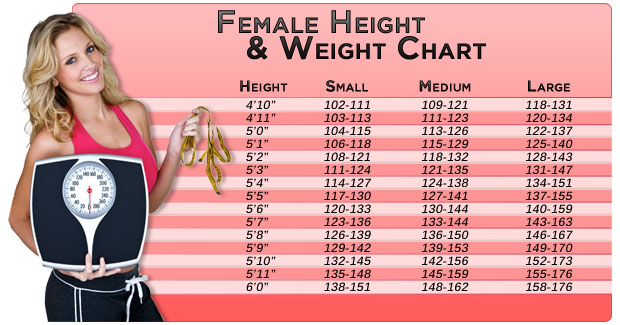What should a 50 year old woman’s BMI? A BMI of between 18.5 and 24.9 is ideal.
First, How long does it take to lose 20 pounds? Since there are about 3,500 calories in one pound, it would take you one week to lose one pound and 20 weeks to lose 20 pounds.
Should you weigh more as you get older? As you age, your muscle mass decreases and your fat mass increases. Fat is less metabolically active than muscle—you don’t need as many calories to maintain fat as you do to maintain muscle. Hormonal changes can also lead to weight gain.
Second, How can I lose weight over 50? The 20 Best Ways to Lose Weight After 50
- Learn to enjoy strength training.
- Team up.
- Sit less and move more.
- Bump up your protein intake.
- Talk to a dietitian.
- Cook more at home.
- Eat more produce.
- Hire a personal trainer.
Does body fat increase with age? The amount of body fat goes up steadily after age 30. Older people may have almost one third more fat compared to when they were younger. Fat tissue builds up toward the center of the body, including around the internal organs.
Where does your body lose weight first?
The first place men typically lose weight is the belly, while women tend to lose weight all over, but hold onto weight in their thighs and hips, Dr. Block explains.
How much do I need to walk to lose 20 pounds?
If you plan to lose 20 pounds by walking alone, try to burn at least 250 extra calories during your walk per day. For example, if you weigh 160 pounds you’d have to walk at least 40 minutes per day at a pace of 4 miles per hour to lose ½ pound per week.
What should I eat to lose weight in a month?
If you’d prefer to lose weight while still eating complex carbs, add in some healthy whole grains to your meals such as:
- quinoa.
- oatmeal.
- whole wheat flour, bread, or pasta.
- brown rice.
- rye.
- barley.
What is considered petite weight?
If you’re 5 feet 4 inches tall, your ideal body weight is right around 120 lbs. But with petite women of a small frame, you should also subtract 10 percent from this body weight. This means that your ideal body weight is now 108 lbs. Larger frames add 10 percent, so your ideal body weight is now 132 lbs.
What is considered a small frame for a woman?
A measurement between 2.75 and 3 inches (7 to 7.6 cm) constitutes a medium frame. Anything above 3 inches is a large frame, and anything below 2.75 inches is a small frame. Women can use the same numbers.
What height is petite size?
Petite clothing is specifically designed for women whose frames are 5’4” and under, and the clothing has been cut proportionally to fit and flatter the petite women’s frame.
How can a short woman lose weight?
5 Weight Loss Tips Every Petite Woman Should Know
- 1) Allow Yourself Carbs.
- 2) Watch the Small Stuff.
- 3) Eat High-Calorie and High-Fat Foods Sparingly.
- 4) Swap Your Meals.
- 5) Skip the Treadmill, Pick Up the Weights.
Does weight increase with age?
As you age, your muscle mass decreases and your fat mass increases. Fat is less metabolically active than muscle—you don’t need as many calories to maintain fat as you do to maintain muscle. Hormonal changes can also lead to weight gain.
At what age do you stop losing weight?
(Men and women tend to put on little or no weight after age 40 and lose weight in their 70s, according to HHS.) For a variety of reasons, it’s tougher for men and women to drop pounds as they transition from young adulthood into middle age than it is to shed weight during young adulthood, experts say.
Why do women’s stomachs get bigger as they age?
This is likely due to a decreasing level of estrogen, which appears to influence where fat is distributed in the body. The tendency to gain or carry weight around the waist — and have an “apple” rather than a “pear” shape — might have a genetic component as well.
Why am I gaining weight when I barely eat?
Unintentional weight gain occurs when you put on weight without increasing your consumption of food or liquid and without decreasing your activity. This occurs when you’re not trying to gain weight. It’s often due to fluid retention, abnormal growths, constipation, or pregnancy.
What is menopause belly?
Changes in your body’s hormones and rapidly shifting moods are common, and you may notice weight gain around your midsection. Some people refer to this symptom as “menopause belly.” Your body shape may change without weight gain, or you may gain weight that all seems to land around your midsection.
How can I speed up my metabolism after 50?
How to Increase Metabolism After 50
- Build Muscle Mass.
- Get Aerobic Exercise.
- Stay Hydrated.
- Eat Healthy.
- Have Small Meals More Often.
- Get Enough Sleep.
How do you avoid saggy skin when losing weight?
How can you avoid loose skin while losing weight?
- Lose weight gradually. Although it may not always be an option, losing weight slowly is the best way to prevent loose skin.
- Lose weight by building muscle.
- Eat a balanced diet.
- Quit smoking.
- Stay hydrated.
- Protect your skin.
At what age do females gain the most weight?
Among both sexes, those ages 25 to 34 were most likely to experience a major weight gain, according to the study, and after age 55, weight levels in men and women studied began declining.






